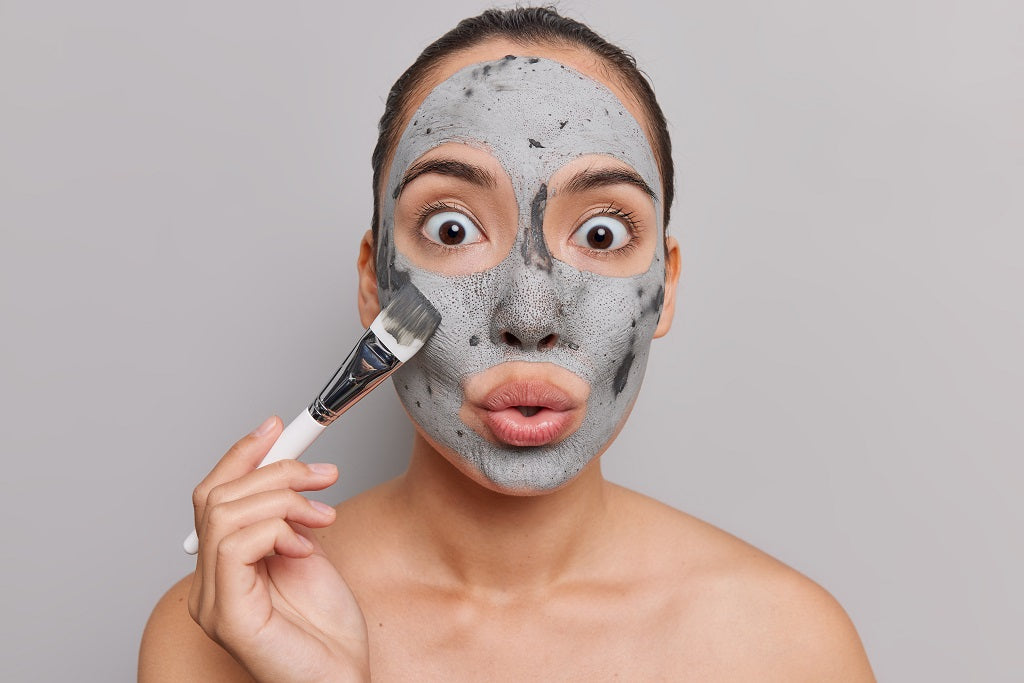Oil masking has ultra-nourishing properties that can make the hair thick, silky, and strong. With so many oils available in the market, we are bound to find one that will suit our hair and scalp type. Today we are going to discuss oil masking, and how to make the most of its optimum benefits.
Why Is It Important To Oil Your Hair?
Oil masking your hair is like feeding your hair with nutritious food. Oil should be applied to your hair once or twice a week to keep it well-nourished, healthy, and shiny.
As per our hair expert, the benefits of oiling hair have been known for ages. Our grandmothers and great-grandmothers used to religiously oil their hair regularly. Regular hair oiling sessions were their secret to healthy, long, and luscious hair. Hair oiling protects the follicles against damaging surfactants by filling the gaps between your cuticle cells. Oiling protects your hair from hygral fatigue and reduces hair damage due to chemical products.
Limit your oil masking treatment to the ends of your hair if you have oily scalp and thin hair. Masking your hair with oil protects it from environmental aggressors that cause your hair to look dry, dull, and brittle.
Coconut oil, olive oil, and avocado oil, are used primarily for oil masking. They are rich in vitamins and fatty acids, which nourish and hydrate your hair. You can also use an oil-blend for additional benefits.
Benefits Of Oiling Your Hair
As per our hair expert, there are multifold benefits of oiling your hair. It pumps moisture into the hair and scalp, protects hair from damage and prevents issues such as hair fall, hair thinning, and dandruff. Let's have a look at some of the myriad benefits of oiling your hair.
- Smoothens hair and restores shine
- Repairs damaged hair
- Rehydrates dry hair
- A great way to pamper your hair
- Promotes hair growth by strengthening hair follicles
- Repairs split ends
- Improves scalp health
- Eliminates frizzy hair
- Provides vital nutrients to the hair and scalp
- Eliminates dandruff
- Prevents premature greying of the hair
- Provides relief from stress and tension
- Prevents hair fall by adding strength to your hair
Also Read : How to Get Rid of Split Ends- Natural Ways to Protect Hair
How To Choose The Right Oil For Your Hair?
It depends on the condition of your hair and scalp. Vitamins and essential fatty acids present in different types of oils strengthen the hair shaft when they are applied directly to your hair and scalp. Before applying any oil to your scalp, make sure that you are not allergic to it. We have compiled a list of a few oils that are beneficial for promoting healthy hair and scalp.
1. Coconut Oil
Coconut oil is light and can easily penetrate your hair shaft. It is high in fatty acids such as lauric acid and exhibits a high affinity for protein molecules. It binds with the protein of your shaft, improving the texture and appearance of strands. It repairs damaged hair, while adding strength. This oil is the best choice for all hair types.
Also Read : Coconut Oil for Preventing Hair Loss - How Does it Work
2. Argan Oil
The high level of vitamins such as Vitamin A, and E, essential fatty acids, and antioxidants make argan oil a versatile beauty ingredient. It strengthens your hair and naturally conditions it, making your hair soft, shiny, and frizz-free.
MOROCCAN ARGAN OIL, COLD PRESSED ORGANIC, 100ML
- Great for CURLY HAIR & FRIZZY OR DRY HAIR.
- Regulates sebum and controls ACNE BREAKOUTS.
- Vitamin E & anti-oxidant rich – combats the SIGNS OF AGEING.
- Hydrates NAILS & LIPS
3. Almond Oil
Vitamin B, E, and K are abundant in almond oil, which effectively nourishes and conditions your hair. The high level of antioxidants in almond oil helps to eliminate oxidative stress. Almond oil masking fortifies the hair follicles with vital nutrients, enhancing the quality of your hair.
ANVEYA SWEET ALMOND OIL, COLD PRESSED ORGANIC, 100ML
- Antioxidant properties fight WRINKLES & SAGGING SKIN
- One of the best oils for MASSAGE
- Rejuvenates dead cells, moisturizes CHAPPED LIPS
4. Jaborandi Oil
Jaborandi oil has more therapeutic value than any other oil. It stimulates hair growth and nourishes the dry scalp. It moisturizes the hair and prevents split ends and dandruff.
5. Olive Oil
Olive oil is rich in Vitamin E and antioxidants which are beneficial for promoting a healthy scalp and improving the quality of hair. It keeps your hair well hydrated and well-nourished, making hair soft, smooth, and silky.
Experts suggest that those with oily scalp can go for light, non-greasy oil such as grapeseed oil, almond oil, or jojoba oil.
How To Oil Your Hair?
Oil masking helps to hydrate and nourish your scalp and hair. It improves blood circulation and scalp condition. Let's discuss how to oil hair.
- Heat the oil using a double boiler method until the oil is warm.
- Next, take a section of your hair and massage the oil from root to tip. Use your fingertips to massage the oil in a circular motion.
- Secure your hair and tie it into a topknot. Experts recommend not to tie your hair too tightly as oiling makes your hair more vulnerable to breakage.
- Warm showers can be beneficial as steam can increase absorption. You can soak a towel in hot water and cover your head with it.
- Let it rest for at least 1 hour before washing it off.
Also Read : Hot Oil Massage for Hair - Benefits and How To Do
Should You Apply Oil To Dry Hair Or Wet Hair?
It is a known fact that water repels oil. Applying oil to damp hair will not allow the oil to penetrate deeper into the shaft, making the whole process ineffective.
Water forms a barrier on your hair and scalp, preventing oil from getting through. To deeply nourish your hair and scalp, the oil must be applied to dry hair.
How Often Should You Oil Your Hair In a Week?
Oiling your hair 1 or 2 times a week is ideal. Oil your hair and gently massage for 2-5 minutes; leave it for an hour followed by shampooing with a gentle hair cleanser.
Can We Leave Oil On Hair For 3 Days?
Avoid leaving oil on your hair for more than one day. Experts don’t even recommend one day as leaving oil on your scalp for a longer period can make your scalp greasy, attracting dirt and debris which can block your pores, resulting in various scalp conditions.
Disclaimer: All the content on anveya.com/blogs is solely for information. It is not intended to be a substitute for professional medical advice, diagnosis or treatment. Always seek the advice of your physician or a qualified health care provider. The information, suggestion or remedies mentioned on this site are provided without warranty of any kind, whether express or implied.





